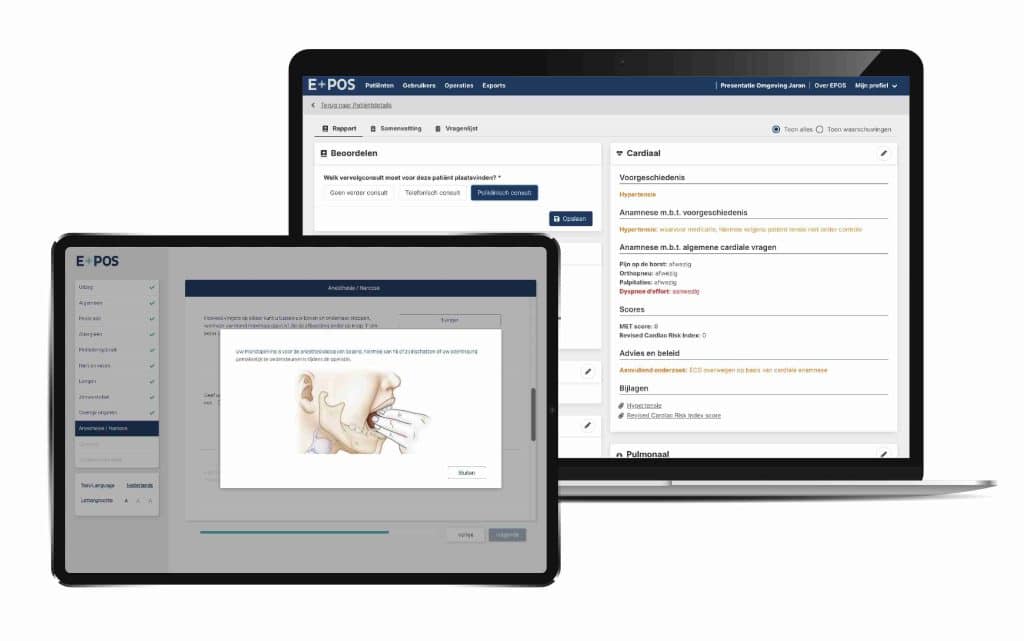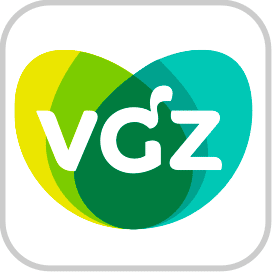Good preparation for surgery begins at home
More and more healthcare professionals are showing us good sensible care initiatives. Successful initiatives that lead to better patient care, smart use of scarce healthcare personnel and more accessible care. One example is (digital) preoperative screening (E-POS)*.
60 to 70% fewer consultations at the outpatient clinic
Through the web application E-POS, developed by NovaCair, preoperative screening is performed digitally and remotely. In preoperative screening, patients are normally physically assessed at the anesthesiology outpatient clinic in preparation for surgery. Using E-POS , this is now largely done digitally and remotely. The first results of E-POS are promising. By using E-POS , there are 60 to 70% fewer physical consultations**.
How does E-POS work?
The patient completes a questionnaire digitally in preparation for surgery. Based on the answers, an advice document is automatically generated based on international guidelines. In addition, E-POS contains a triage system, which results in one of the following opinions: whether patient is suitable for digital clearance, still needs to be called by the doctor after, or needs to come to the hospital. There are also several animations in the app explaining to the patient the surgery, living rules and anesthesia options. The app only shows the patient personalized information, this eliminates the need for them to search for information.
Patients can prepare for surgery from their own familiar surroundings
E-POS offers patient freedom and self-direction. Patients can decide when to take in the information and watch it back at any time. This gives them the opportunity to discuss any questions with their own environment. Research shows that information sticks better in the patient's home environment. Also, patients do not have to visit the hospital unnecessarily. They can prepare for their surgery at home through clear instructions.
The E-POS advisory document gives anesthesiologists a better understanding of the patient's health. This allows them to go into a consultation with complex patients better prepared. Because the information from E-POS is available to all medical specialists involved, they will also form a more unambiguous opinion of the patient. In the long term, this will allow them to fill in the consultations more efficiently. The times can then be set according to the health and needs of the patient.
Rik Bijl, NovaCair: The big difference between E-POS and other systems is that we work with a validated triage system. Also, E-POS comes with a concrete and well-considered advice document for the anesthesiologist. This refers to the guidelines and it can also be used for the patient record."
E-POS at the Dijklander hospital
The Dijklander Hospital started E-POS at the end of March. The first results of the pilot are very positive. Already 1600 patients have been screened using E-POS and until July 36% patients have been immediately approved for surgery by E-POS . Because the Dijklander Hospital is still in a pilot phase, all patients will be called until September 1. After that, patients will be approved immediately through E-POS. There are currently discussions to link E-POS to the electronic patient record. In the future, Dijklander and NovaCair also want to advise patients on preoperative activities, such as discontinuing medication or nutrition, making preoperative care increasingly safe.
John van Roy, anesthesiologist at Dijklander Hospital: "E-POS is the textbook example of sensible care. It offers the patient freedom and control. The specialist gains more insight into the patient's state of health through E-POS . This allows a division to be made between healthy and less complex patients. This ensures that as a specialist you can devote your attention to the patients who really need it."
The initial response from patients at Dijklander Hospital is also very positive. They find the instructions informative and clear. Patients have no additional questions for the specialist, this indicates the completeness of the information in E-POS.
Accelerating scale-up through sharing experiences
E-POS has accelerated because of corona. Many hospitals are now accelerating their adoption of digital care and are eager to get started with E-POS . NovaCair has seen the number of requests for E-POS double recently. In addition to anesthesiology, there is increasing interest in the app among other specialties, such as surgery. By the end of next year, NovaCair wants to have implemented E-POS at 15 to 20 hospitals. The Dijklander Hospital has also shared their experiences with E-POS with the other hospitals in the Sensible Care Network. The Elisabeth Tweesteden Hospital (ETZ) has also been using E-POS since July 1. The Northwest Hospital Group is in talks with NovaCair about the deployment of E-POS.
E-POS will be the new normal in 5 years
Specialists indicate that you don't always need to go to the hospital for good care. With the application of smart technology, good care, and preparation for it, can also be delivered at home. By determining in advance what the added value is for the patient to come to the hospital, the specialist can weigh up whether the appointment can also be done digitally. In this way, appointments can be used much more efficiently. This way of thinking will make care look very different in five years.
Anesthesiologist John van Roy, anesthesiologist at Dijklander Hospital, can recommend E-POS to every specialist. "Because of E-POS we can work in a much more standardized way and better show our added value as a specialist. As a result, we are significant where it is needed and can spend our time optimally. This allows us to optimally prepare patients for surgery and reduce risks."
*This initiative follows the released professional framework of the NL Society of Anesthesia 2019.
** This percentage is based on the non-academic population.


